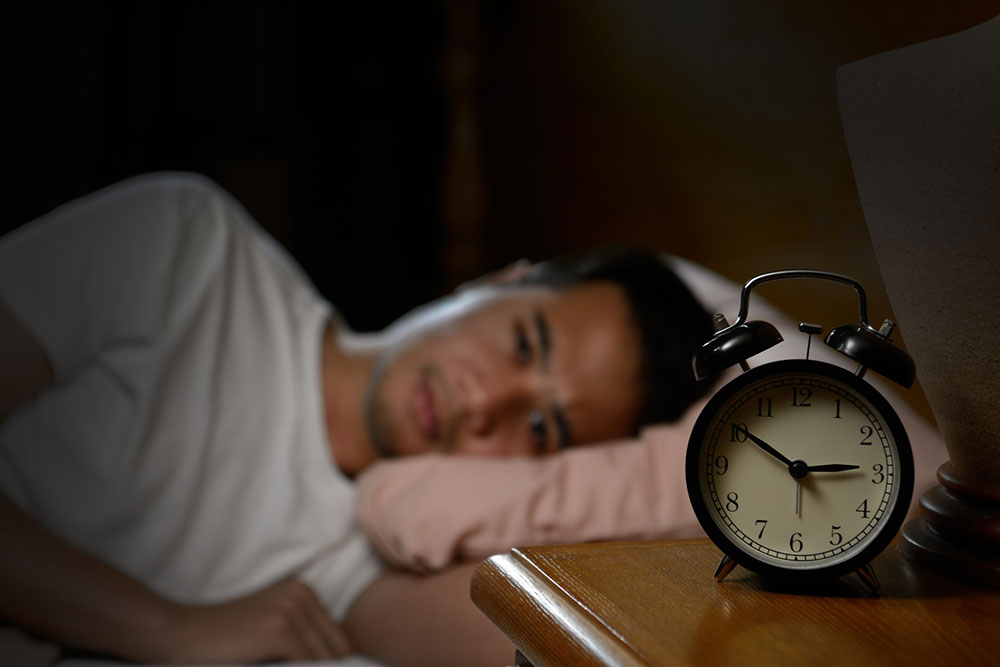Effective Tips for Managing Insomnia
Insomnia is a common sleep disorder in which individuals struggle to fall or stay asleep. Some symptoms of insomnia include daytime drowsiness, difficulty maintaining focus, increased irritability, impaired work performance, and stress. For some individuals, this condition is only mildly distressing, but for others, it can affect their day-to-day lives. While medical intervention can help those with insomnia find some relief, they can also look into some home remedies to address the condition.
Reduce caffeine intake
Caffeine is a stimulant and can negatively influence a person’s body clock. Regular caffeine consumption can lead to the onset of insomnia or worsen it.

Additionally, caffeine remains in the body for several hours. So, if an individual consumes multiple cups of coffee during the afternoon, the effects of caffeine will persist until late at night. For all these reasons, individuals with insomnia should reduce caffeine consumption or avoid it entirely, if possible.
Exercise regularly
Daily workouts have proven to boost overall health.
Many studies have found that individuals who exercise for at least 150 minutes every week are more likely to feel tired and sleepy when they go to bed at night. They are also more likely to fall asleep and remain in deep sleep for longer periods of time. So, it is recommended to engage in moderate exercises like strength training or vigorous aerobic workouts for individuals with insomnia or sleep-related issues. This will help to maintain optimal blood pressure, foster a positive mindset, and enhance the quality of sleep.
That said, before engaging in a new workout routine, individuals should consult a healthcare professional or personal fitness expert to avoid injuries or aggravate specific health problems. For instance, those with heart conditions might be asked to avoid rigorous exercises.
Practice yoga and relaxation techniques
Stretching and rhythmic breathing are known to be quite effective in improving sleep quality. Doing yoga daily relieves stress, boosts concentration, and improves the overall physical functioning of the body. Those new to yoga can choose a style that focuses on meditation, breathwork, and simple bodily stretches instead of highly complicated physical movements. Simple restorative yoga that involves slow, controlled movements can help individuals stay focused and present. Practicing yoga breathing and postures before bed helps people unwind and relax easily.
Stress is a major cause of insomnia. Often, individuals with anxiety and stress might notice their brains working in overdrive, especially at night. This keeps the mind from relaxing and drifting off to sleep. Techniques such as deep, rhythmic breathing, guided imagery, and progressive muscle relaxation can help individuals fall asleep.
Engage in stimulating activities
Word games can help induce sleep. For instance, one can select a word of at least five letters and generate a new list of words, starting from the first letter until they run out of words. Then, they can move on to the next letter of the word they had initially picked. This exercise can help relieve stress and drift off. Individuals can also engage in games that require them to visualize things.
Get a massage
A few years ago, a study determined that massage could significantly improve the quality of sleep and reduce any dysfunction during the day for individuals with insomnia. Regularly getting massages can also alleviate pain and stress. While massages are usually safe, individuals with insomnia should check with their doctors, as certain types of massages can exacerbate symptoms of certain health conditions. Besides that, those with sensitive skin might get allergic reactions to certain oils and creams, and the skin irritation may keep them awake at night.
Drink warm milk before bedtime
Drinking warm milk before going to bed is a popular home remedy. Milk contains an amino acid called tryptophan that triggers the body to make serotonin and melatonin. These are essential for the body to relax and prepare for sleep. Those with lactose sensitivty should avoid this, as it can cause them considerable distress.
Eat nutritious meals
An individual’s circadian rhythm or body clock determines the quality of sleep they get. Their daily routine, especially the times of the day during which they consume their meals, play a key role in how their body clocks. work. Individuals who want to regulate their circadian rhythm should eat foods rich in fiber, carbohydrates, proteins, fats, vitamins, and minerals in moderate amounts every day to nourish their bodies. Not only that, individuals should also stick to their meal timings, as this can regulate their body clock and ease into sleep at night.
Some other insomnia management tricks include doing mindful meditation and using lavender oil to feel calm and drowsy.

